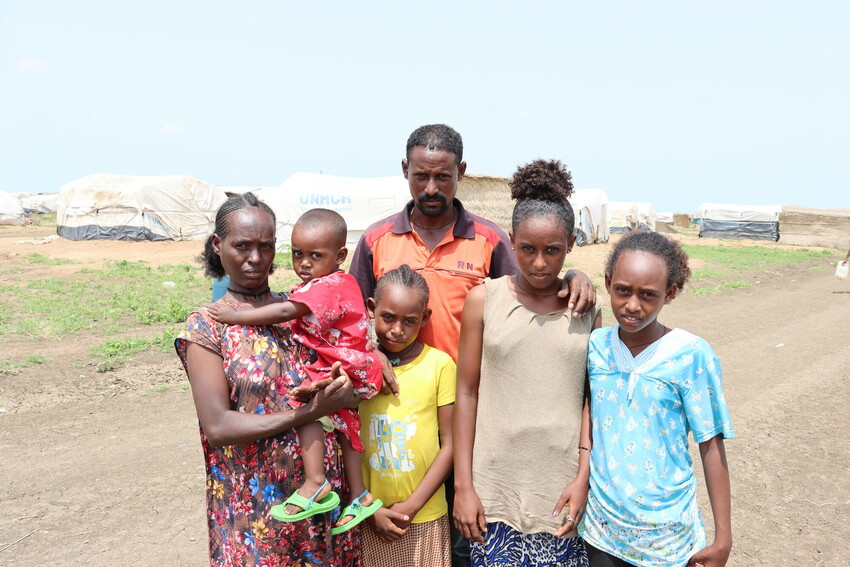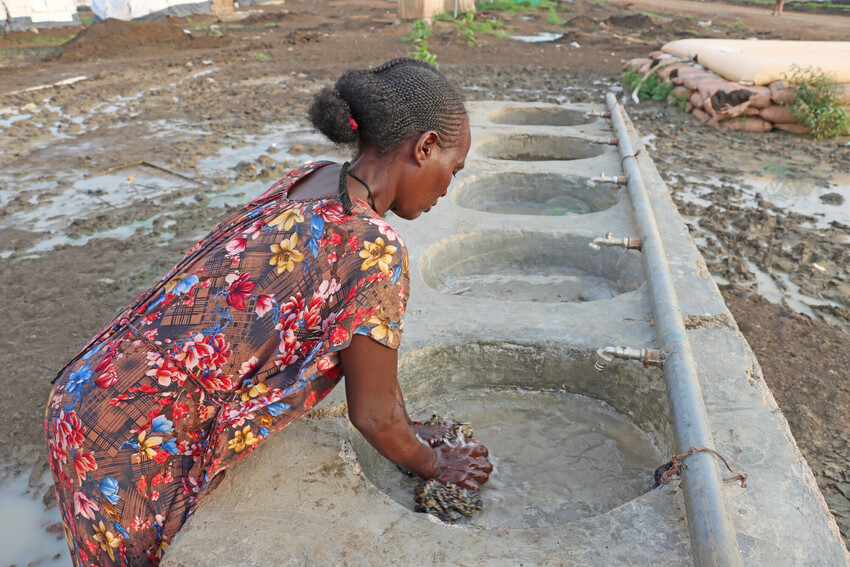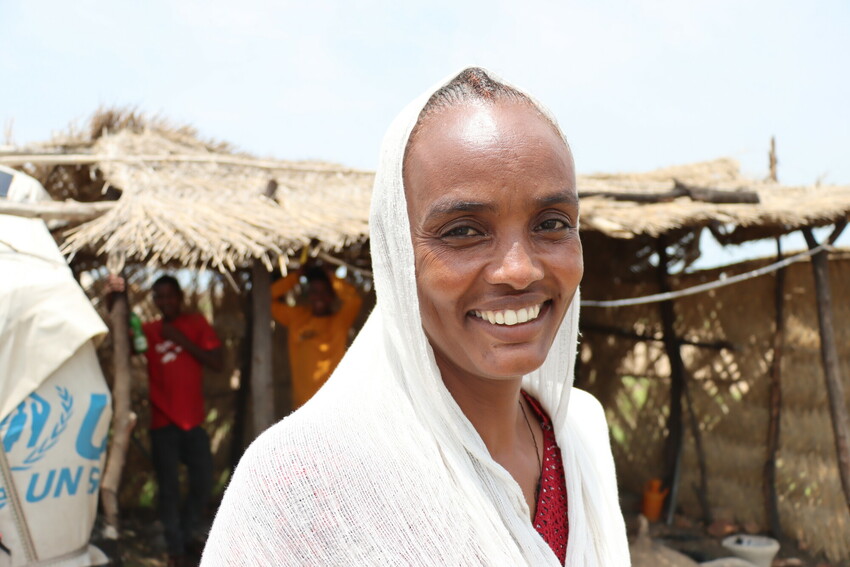The Tigray region of Ethiopia is suffering from a humanitarian crisis after conflict broke out in November 2020. The violence forced thousands of people to flee their homes, many crossing the border into Sudan where they live in dire conditions in refugee camps. Islamic Relief has been working to support vulnerable families by improving conditions in refugee camps.
Leaving everything behind
Among those who fled their home is mother-of-4 Maaru from Rwasa village.
“We felt trapped. We were attacked by bombs from the sky and land. We fled from Rwasa to Humara (a town in Tigray),” says Maaru, who is among almost 70,000 Ethiopian refugees living in Sudan.
“We hopped into the car of a stranger who was also escaping. We left everything behind. There was no time to look back. My husband left behind a farm he owned – it had cattle, sesame and corn plants.
“We then crossed the border to Hamdayet on foot. We had to walk for 2 hours. We stayed in Hamdayet for a week before we settled at Tunaydbah Camp,” she says.
9 months ago Maaru settled in the camp in Sudan’s eastern Gadarif State, with her children and husband, Fahtay.

Sanitation and hygiene
Tunaydbah Camp currently hosts over 21,000 refugees. Sanitation facilities in the overcrowded camp were very poor.
Islamic Relief, in collaboration with the UN’s Sudan Humanitarian Fund (SHF), helped improve facilities for 4,600 people living in the camps through a project delivered last December.
It involved constructing 20 new communal laundry washing facilities, each consisting of 5 concrete basins. The washing facilities connected with water networks in the camps.
“Before the construction of the washing facilities, I used washing basins in my tent. The basins did not have a drainage system and dirty water accumulated on the ground. The dirty water caused an unpleasant odour and mosquitoes infested the area,” says Maaru.

“I now wash my children’s clothes in the washing facility almost every day. Washing clothes regularly is especially helpful in our situation because we don’t have many clothes here. I also wash our sheets and sleeping mats every 3 days.”
“The washing facility is fixed and firm which enables me to wash big items in it. It also helps with my posture because it is elevated from the ground. I no longer have back pain,” she says.
“Constructing the washing facilities was an innovative response. We constructed the facilities near water systems so they are easy to use. We also made sure to construct them near families with children,” says El-Tahir Imam, Programme Manager for Islamic Relief Sudan.
“The washing facilities have improved personal hygiene practices among refugees.”
Senait’s story
“I was at the office one day with my brother to collect our salaries when I heard disturbing sounds outside. I first thought it was the sound of tractors flipping sand, but when some men went outside they realised it was bombs exploding,” says mother-of-3 Senait, describing the violence in her home town.
“They told us to escape. I rushed to my children at home, I was very scared. A bomb was thrown beside my house and my neighbour’s 6-year-old son was badly hurt. I was lucky to be alive!”
Senait eventually reached Tunaydbah Camp, with her 70-year-old father, 3 children and 5-year-old granddaughter, Rahuma. But living conditions inside the camp were dire.
“When we first arrived at the camp, we used to defecate in the open. Then some agencies started to construct latrines. Before Islamic Relief constructed the latrine near my tent, I used to stand in a long queue to use one that is far away. Now, my children and father can easily use the latrine. Women are especially happy that we have privacy,” says Senait.

“The spread of diseases in the camp have notably decreased since the construction of the latrines. I hope Islamic Relief continues its work in the camp and I hope every refugee family has a latrine at their shelter,” says Camp Manager Osman Zayed.
Humanitarian support
As well as constructing 72 latrines, Islamic Relief conducting cleaning campaigns during our project in December 2020. We also provided 1,000 families with personal protective equipment to help combat the spread of Covid-19 in camps.
In addition we provided secondary school education, and improved security by installing 70 solar lights.
Islamic Relief’s project has helped to improve conditions refugee families like Maaru and Senait’s, but they long for home.
“I hope for peace and to return to my home; nowhere is like home,” says Maaru.
There is no end in sight for the conflict in Tigray, and more refugees are expected to cross the border into Sudan. Humanitarian support is urgently needed. With your support, we can continue providing vital aid to vulnerable families living in camps: please donate now.










